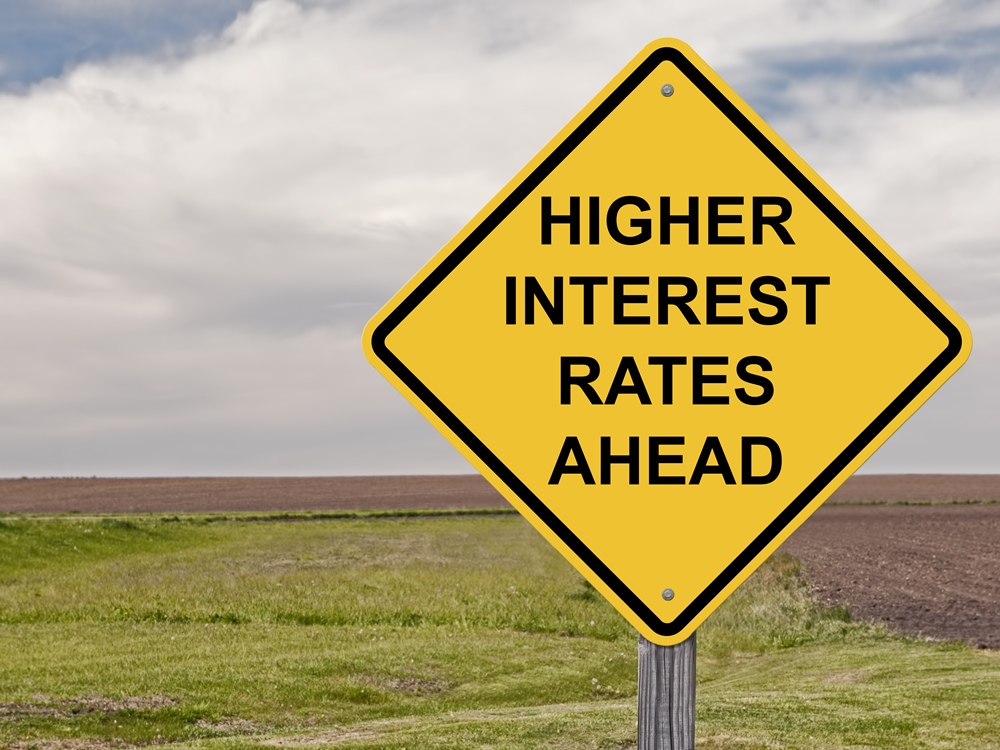
As expected, some major mortgage lenders have started a fresh round of rate hikes following this week’s run-up in bond yields.
RBC, BMO, CIBC and National Bank of Canada (NBC) have all raised fixed mortgage rates following this week’s Bank of Canada rate decision.
- RBC hiked it special-offer 5-year fixed rate by 20 bps to 2.79%. It also raised its 5-year variable rate 5 bps to 1.65%.
- BMO raised its default-insured (high ratio) 5-year fixed by 23 basis points to 2.62% and its uninsured rate by 20 bps to 2.79%. It also raised its 5-year variable rate 10 bps to 1.65%.
- CIBC hiked its insured 5-year fixed rate by 20 bps to 2.42% and its uninsured 5-year fixed by 20 bps to 2.79%. It also raised its default-insured 5-year variable by 10 bps to 1.49% and its uninsured 5-year variable by 10 bps to 1.65%.
- NBC raised its special-offer 4-year fixed rate by 15 bps to 2.69% and its 5-year fixed by 20 bps to 2.79%.
- HSBC raised its insured 5-year fixed rate by 15 bps to 2.34% and its uninsured 5-year fixed by 15 bps to 2.44%.
- Desjardins raised its 5-year fixed rate by 15 bps to 2.69%.
Other non-bank lenders raised some rates this week as well, including First National, which raised its default-insured 5-year fixed by 5 bps.
Just last month, mortgage shoppers could find plenty of 5-year fixed rates for under 2.00%, including some special-offers from the big banks, but that’s no longer the case. Only a handful of deep-discount online brokers are still offering 5-year fixed rates below 2.00%, and only for insured mortgages.
These fixed-rate hikes were expected following major gains in bond yields this week after the Bank of Canada announced it would end its Quantitative Easing (QE) program. That program saw the purchase of hundreds of billions of dollars worth of bonds during the pandemic, which in turn improved market liquidity but kept bond yields artificially lower.
The Government of Canada 5-year bond yield, which influences 5-year fixed rates, closed above 1.51% today, a 21-month high.
As for variable rates, the Bank of Canada this week moved up its expectations for the first hikes to the “middle quarters of 2022.” Some analysts see the first BoC rate increase taking place in April, while markets are pricing in a hike as early as March. Changes to the Bank’s overnight target rate influence prime rate, which is used by banks and other lenders to set their variable rates.
B.C. Real Estate Market to “Remain Vigorous” in 2022
Following record home sales in 2021, activity in B.C. is expected to remain strong next year, according to the British Columbia Real Estate Association (BCREA).
“While we do not anticipate a repeat of the record-setting market of 2021, we do expect the housing market activity to remain vigorous in 2022,” said BCREA chief economist Brendon Ogmundson.
A rise in fixed mortgage rates and a higher minimum mortgage stress test implemented earlier this year will dampen activity slightly to 102,750 units in 2022, according to the association’s latest housing forecast. That’s down from the record 121,450 sales expected for 2021, but still well above activity in 2018, 2019 and 2020.
“Even with home sales moderating from record levels, market conditions are expected to be extremely tight due to a historically low inventory of listings in the province,” Ogmundson added. “Increased housing supply is sorely needed all over the province, which is experiencing an historic drought in terms of the availability of homes.“
As a result of low inventory and high demand, home prices are expected to end 2021 up an annualized 17%, at an average price of $914,400. Prices are expected to continue to rise in 2022—albeit at a more moderate pace—by 2.7% to an average price of $938,900.
Home Capital Closes RMBS Transaction
Last week, Home Capital Group and its subsidiary Home Trust Company announced the closing of a $425-million tranche of residential mortgage-backed securities (RMBS).
The securities are backed by a portfolio of near-prime, uninsured residential mortgages, composed of A, B and Z tranches totalling $500 million. The A tranche of $425 million was sold to accredited investors in Canada and institutional investors in the U.S. Home Trust retained the remaining tranches of $75 million.
“The healthy investor demand for this RMBS offering demonstrates continuing market support for this program,” said Brad Kotush, Executive Vice President and Chief Financial Officer at Home Capital. “We expect that programmatic RMBS issuances will be a sustainable element of our ongoing funding strategy.”



